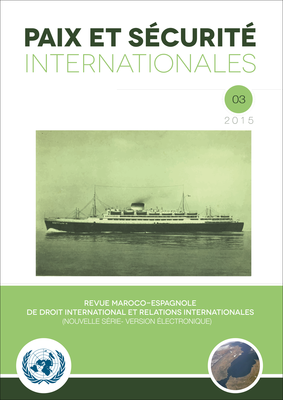Foreign Fighters and Jihadists: Challenges for International and European Security
Abstract
Abstract: Over the past three years the number of foreign fighters either resident in Europe or of European nationality fighting in confl icts in Syria and Iraq has increased. Most of them share radical Islamist religious motivations, and many States and international institutions classify them as terrorists or potential terrorists. In this study we aim to identify and characterize the phenomenon of foreign fighters starting from a historical perspective until reaching their impact on current international security relations. This work also analyses the causes why some groups of foreign fighters might pose a greater danger to national security than in earlier periods, and the reasons why the increase in the number of foreign fighters in armed conflict generates a series of changes in conflictual international relations. Finally it analyses the fundamentals of the measures proposed by the Security Council, the European Union and international cooperation forums to deal with the danger posed by foreign fighters of European origin, especially those proposals that impose sanctions as well as those that prefer to tackle the problem from a preventive and rehabilitative perspective of the individual.
Keywords: Foreign figther, jihadist, international security, european security.
Downloads
How to Cite
License
Copyright
Es condición para la publicación que el autor o autores ceda(n) a la Revista, en exclusiva, los derechos de reproducción. Paix et Sécurité Internationales es una revista que proporciona un acceso abierto inmediato a su contenido totalmente gratuito para lectores como para los investigadores que pretendan publicar en ella, ya que no se realizan cobros por concepto de envío, procesamiento ni publicación. Los usuarios podrán leer, descargar, copiar, distribuir, imprimir, buscar o enlazar el texto completo de los artículos publicados, o utilizarlos para cualquier otro propósito, dentro de la legalidad vigente. Y podrán hacerlo sin coste alguno, y sin necesitad de solicitar permiso al editor a al autor. Todo ello de acuerdo con la definición de acceso abierto de la Iniciativa Acceso Abierto de Budapest.






